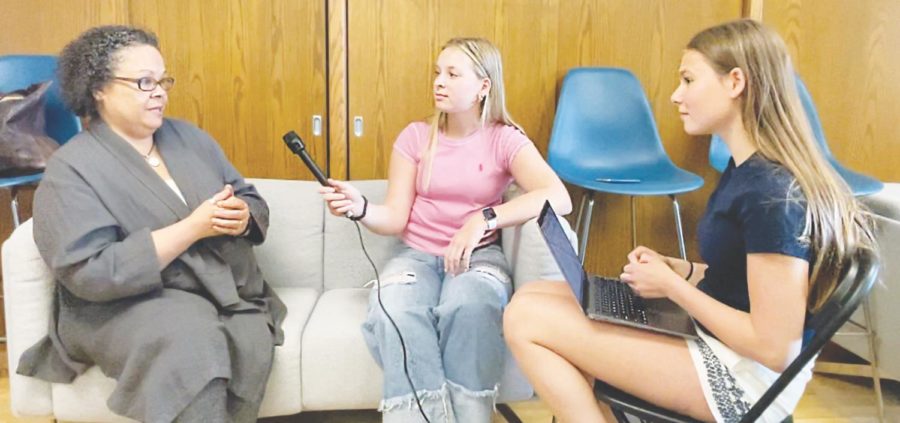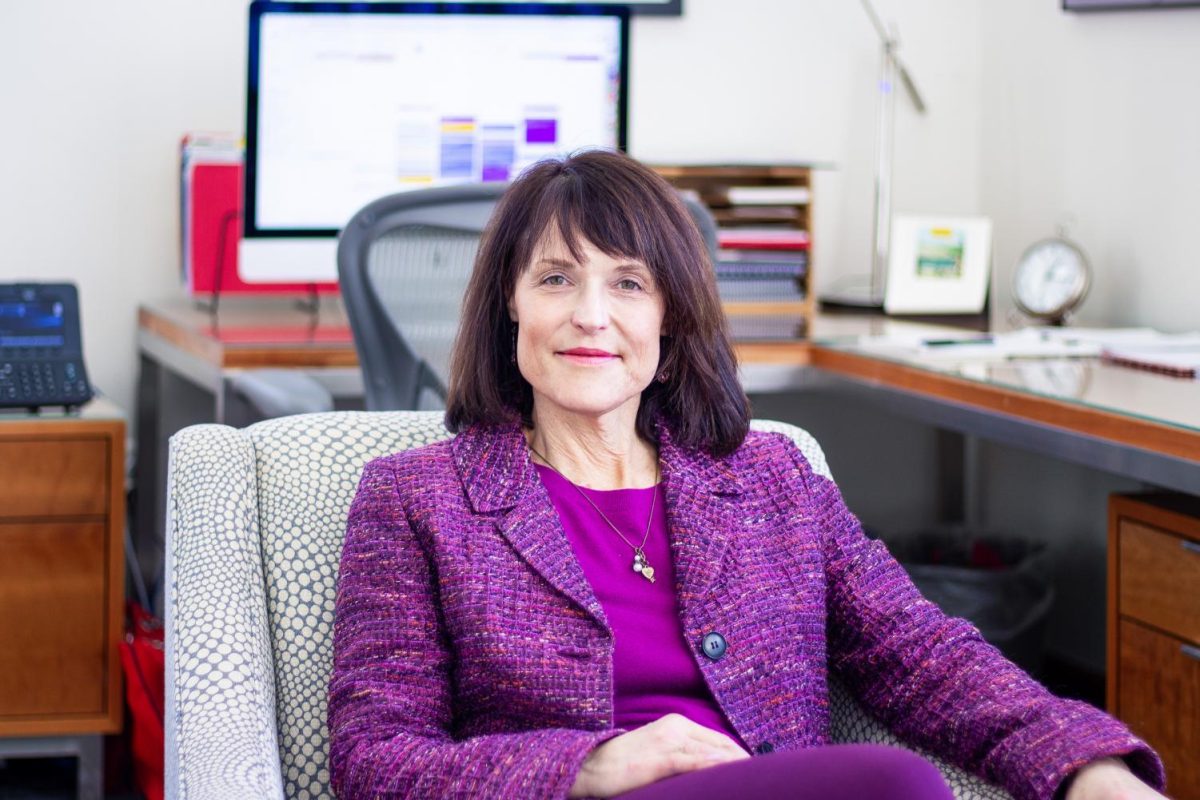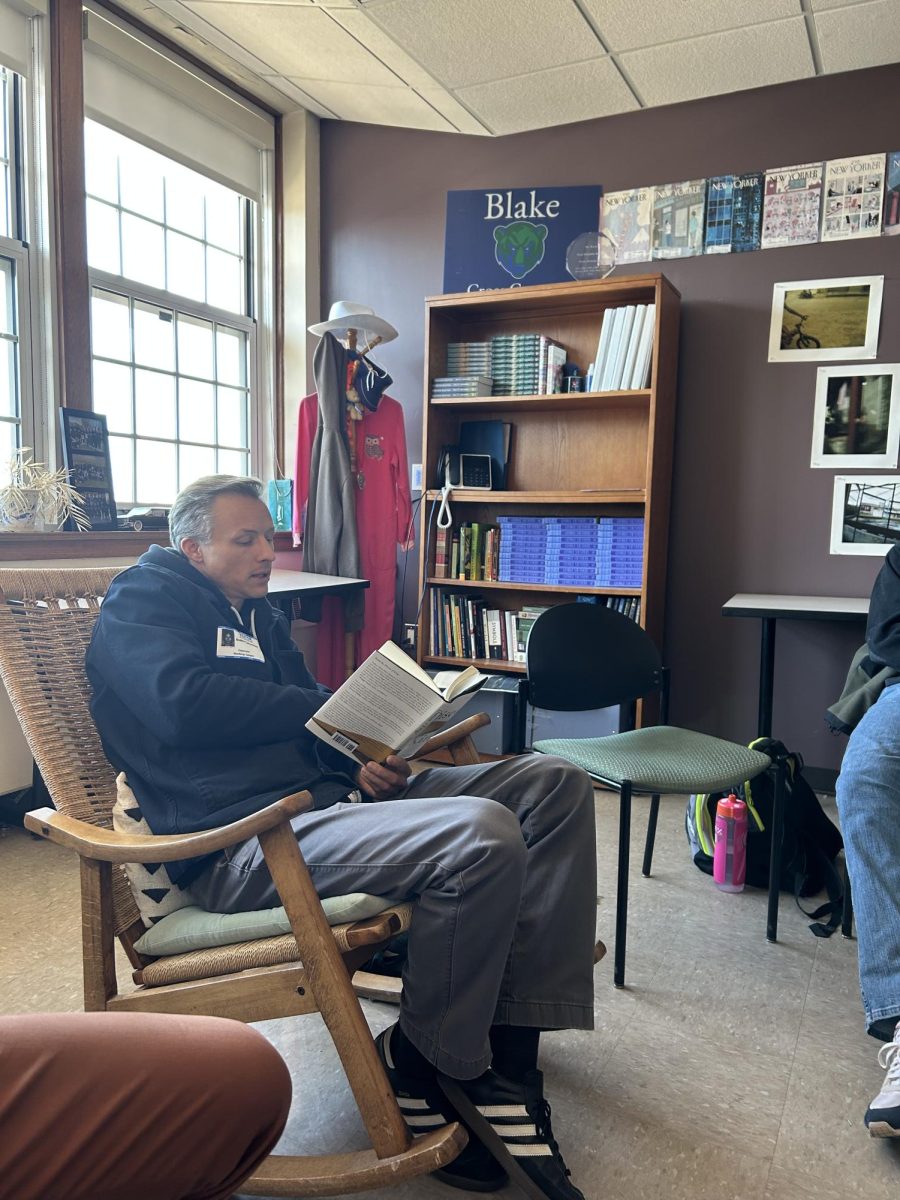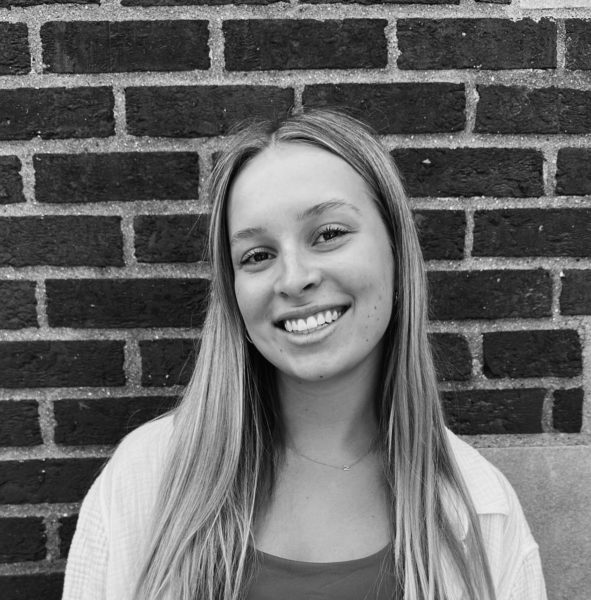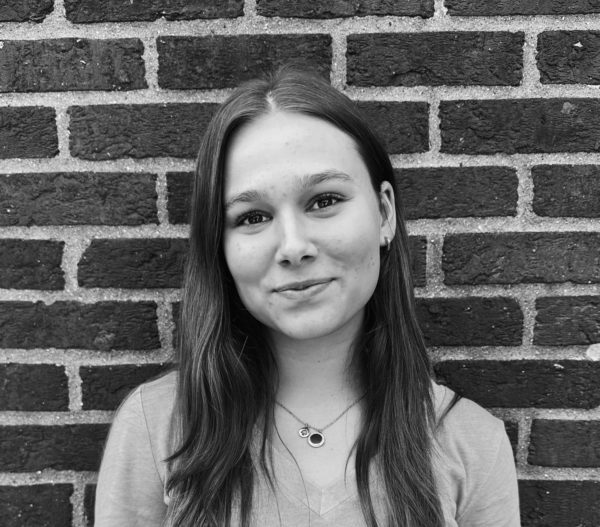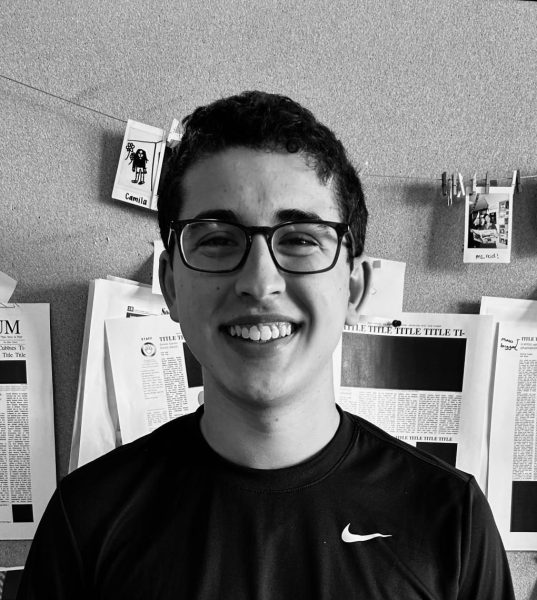“Nothing lights me up more than being with young people… This is what I’m ultimately about – [being] with young people trying to figure themselves out is my passion,” says Julie Lythcott-Haims, this year’s Classes of ‘55 Residency Speaker.
Lythcott-Haims began her three-day visit with a presentation to the Upper School community in the Juliet Nelson Auditorium wherein she replayed lessons from her most recent book, “Your Turn: How to be an Adult.” She combined tales from childhood and early adulthood, interactions with students as well as reflections from parenthood to promote the message that there is no one true “right path.”
Originally, Lythcott-Haims went to Harvard Law School with the intention of helping people. After graduating, she went into a career in corporate law but eventually realized she lost this goal amidst pressure to prove herself and her ability to achieve success. Unfulfilled, Lythcott-Haims debated pivoting her career path to circle back on her desire to help people.
“It’s a privilege to say I might quit this and do something else that might make me less money but also when we are miserable, that’s when our voice speaks loudest to us. At some point, when we are suffering in some bodily sense or some deep sadness, that’s often when we’re finally able to hear our own voice, like, ‘I am so miserable I can’t do this anymore.’ ”
She eventually found her place as the Freshman Dean at her alma mater, Stanford University, where she met countless students pressured into career paths by their parents that ultimately brought them unhappiness.
“I think [Lythcott-Haims’ speech] did strike a chord with me,” says Matthew Sun ‘24. “There were many relatable aspects of the speech and I think that I speak on behalf of many people [that there’s] many [expectations] and pressures put onto us by our parents.”
Disheartened by the stories from students, Lythcott-Haims encouraged them to communicate with their parents regarding their needs, but in doing this, she started to see some of the overparenting behaviors reflected in her interactions with her own kids.
“My job is to teach so they can do for themselves because one day I won’t be here, that’s good parenting. So I became a whole lot more compassionate once I realized I’m complicit in the problem I’m critiquing,” she says.
“I related to the idea about the tension between what other people want you to do and what you want to do,” Taara Verma ‘24 says. “What she had to say about reflecting on her own projections of what she wanted for her kids and being able to recognize that, I thought that was powerful,” she continues.
Impassioned about the helicopter parent problem, Lythcott-Haims sought to convey her message to a broader audience.
“I give speeches on it but I think there’s a book-length piece of content to offer. How am I going to be the person to write a book worth reading?” she says. In pursuit of gaining confidence as a writer, Lythcott-Haims went to California College of the Arts to get her Master’s of Fine Arts in writing.
“I love the ways in which we can all open up to possibility within ourselves and the world by becoming better educated,” she says.
She wrote “How to Raise an Adult”, now a New York Times bestseller, “out of a deep respect for young people having the right to craft their own journey.” At the same time, she was writing poetry.
“In my poetry classes, deeply painful experiences were emerging, like the N-word being written on my locker in senior year of high school. It was the poetry which was bubbling up out of the depths of me, that was showing me [I have] stuff on [my] mind,” she says.
Her MFA culminated with the writing of her thesis, her memoir “Real American.” Speaking to Amanda Minoff’s Memoir class, Lythcott-Haims went over the challenging experience of deciding what stories and people to share in her writing.
“I was really grateful that she was able to make it,” says Minoff. “I find it helpful to bring in different voices and perspectives and I appreciated how a lot of the themes she touched on resonated with some of the bigger discussions we’ve been having in Memoir. I think it’s helpful to hear some of those ideas from a different person who has her own story and her own viewpoints.”
Lythcott-Haims visited Beth Daniel’s Fifth-grade class to speak about some of the topics she touched on in “Real American.”
“[Lythcott-Haims] spoke about her experience growing up as a biracial young girl after sharing the story of Ruby Bridges,” said Daniel via email. “[Her] visit to my class was very impactful on my students.”
In a written reflection on Lythcott-Haims’ visit, one of Daniel’s students shared, “Her speech really moved me and the rest of my grade and I am amazed on how she could do exactly what she wanted to when she grew up despite all the obstacles she had to face growing up.”
Another student added, “It really opened my eyes on how African Americans were treated and in some cases, still being treated like that today.”
“Seeing young people embrace their own identities made me embrace mine. Similarly, working with my own kids and seeing them blossom on their chosen path is a continual reminder that growth is available to us all,” Lythcott-Haims adds. “You know I’ve really had three different careers… I’ve been a lawyer and I’ve been a higher education administrator and now I’m an author and speaker, I was also recently elected to the City Council in my town.”
“I thought it was a really good speech and it gave a really great message. She was mainly talking about college, but you can interpret it in other ways and find a way for it to fit into your life even if you’re not going to college soon,” Maggie Souvingier ‘26 remarks.
In addition to her visits with students, Lythcott-Haims also presented to parents on How to Raise Successful Kids Without Overparenting as well as hosted Breakfast at Blake: What it Means to Be Black in White Spaces.



